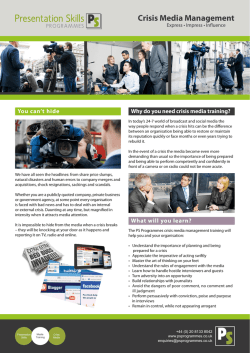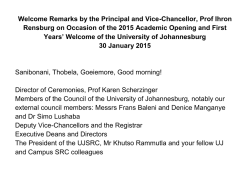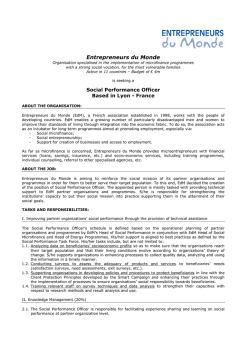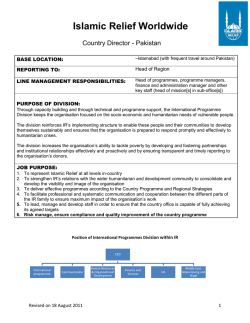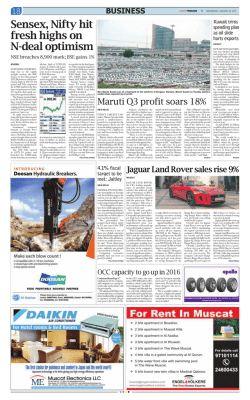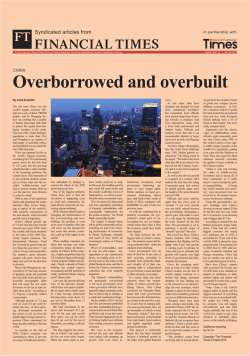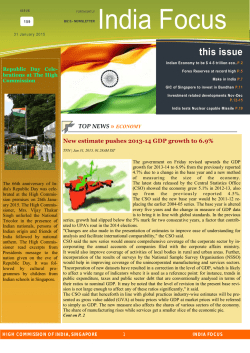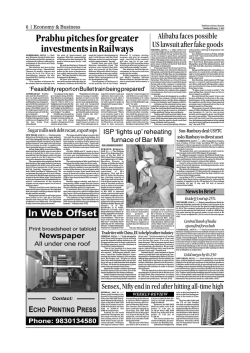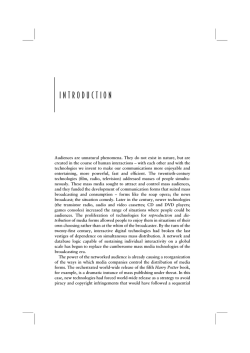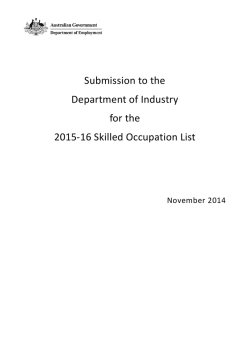
British Council Corporate Plan 2011
CORPORATE PLAN 2011–2015 www.britishcouncil.org CONTENTS Chief Executive foreword 4 1. Vision 6 2. Priorities 10 3. ARTS 12 4. ENGLISH 14 5. Education and society 16 6. Global Network 24 7. Performance targets 34 8. Financial Plan 38 2 CORPORATE PLAN Foreword I am pleased to present the British Council Corporate Plan for 2011–15. In common with most organisations, we have reviewed our strategy in the light of the changes brought about by the global economic environment, the advent of the new coalition government and the changing financial circumstances following the government’s spending decisions. As a UK public service organisation, we seek to make a unique and significant contribution to the government’s vision of a distinctive British foreign policy. We will harness the appeal of UK culture to promote the UK’s values to support prosperity, security and stronger bilateral and multilateral relations for the UK. Trust in the UK remains at the heart of our purpose – to create international opportunities for the people of the UK and other countries and build trust between them worldwide. Recognising the need to concentrate on where we achieve the most impact, we have also focused our strategy on the UK’s great assets: the English language, UK education, the arts, and culture. Since our formation in 1934, the British Council, along with the UK’s other great ‘world institutions’ – the BBC, the British Museum, the great galleries and collections and our world-class universities – has stood for and shared the best of UK culture with other countries to promote their development and prosperity as well as enhancing our own. The British Council’s enterprising mix of ‘for good’ and ‘for profit’ makes for a more entrepreneurial and externally focused organisation than the pure state-funded model many other countries use. We intend to continue to grow as an organisation through increasing our income in English, development contracts and partnership in order to do more despite a falling grant in aid. By 2015 we will earn over £5 for every pound the taxpayer invests in us, making us one of the most cost-effective public organisations in the UK. In 2011 we live in a more turbulent world, with new movements and new possibilities across North Africa and the Middle East, and natural and man-made shocks which have shaken confidence and economies around the world. But the appetite for and the attractiveness of the UK and UK culture is undiminished and the global demand for English and education continues to grow. In this environment, the potential for our work and the difference it can make is even greater. However, in the prevailing economic climate, and in the face of a steep reduction in our funding from government, we have had to make difficult choices as to the countries and impact we will make our priority. This means not doing some things which would be of great value to the UK. We know from decades of experience that language, education and culture are the UK’s most attractive assets, and when we share them we build relationships, win friends and build trust between the people of the UK and other countries. These people-to-people relationships built over decades with all parts of societies – from presidents to business leaders to pro-democracy demonstrators – provide a stable long-term platform for UK security, prosperity and trade. Cultural relations build more stable global societies. 2011–2015 So, to mitigate the reduction in our government funding, we have set out a bold and ambitious Corporate Plan. We are planning a major organisational transformation, building on our strong track record of managing successful change in the last five years: we are committed to growth despite the backdrop of a declining grant-in aid. Through the period 2011–2015 the British Council’s grant will decline by 26 per cent, but we are aiming to grow our overall turnover from all sources by 29 per cent to more than offset that loss of funding. By 2015 we will engage with more people to greater effect than ever before. We will have become leaner and lighter with new models of operation, fewer people and fewer buildings. We will exploit new technologies as well as build on long established programmes which continue to deliver success for the UK. By 2015 we will have generated new partnerships, won new development contracts and generated new sources of income not just to maintain but to increase our global presence for the UK and our impact worldwide. In the British Council, we are confident of delivering more benefit for the UK in 2015 than at any time in our history. As a great British institution, we stand as an embodiment of what is best about the UK’s values and culture. This Corporate Plan is our response to diminished taxpayer resources – the ambition to innovate, transform and more. Martin Davidson CMG Chief Executive British Council 3 4 CORPORATE PLAN 1. Vision 2015 In 2015 the British Council, as today, will be recognised as one of the UK’s most attractive international assets. We will continue to enable the people of the UK to share their culture and way of life with more than 600 million people and partners all around the world. The British Council is a great British institution, and it is a global good. But in 2015 we will be a very different size and shape. We are committed to maintaining an extensive worldwide network of operations, but we will spend much less on our buildings and support services and more on our programmes. Our total turnover will increase from £753 million in 2011 to £968 million in 2015, with the share of activity funded through paid services increasing from 73 per cent to 84 per cent. Our digital audience will grow to 140 million and our broadcast audience to 500 million, complementing the 16 million people who will be involved directly in our work. At the heart of this growth is our renewed focus on sharing the UK’s expertise, experience and content in English, the arts, education and our way of life. Moving towards 2015, we will celebrate our 80th anniversary, creating more international opportunity and trust for the UK with more people, partners and countries than ever before, in ways and at a scale beyond our imagining a decade ago. The British Council is a small investment in a better future for the people of the UK and the world. Our vision for 2015 is to share the UK’s best assets – English, the arts, education and our way of life – to make that future even brighter for us all. 2011–2015 What we do We create international opportunities and build trust between people and peoples all around the world. We call this cultural relations. We share the UK’s assets in English, education and the arts with the people of other countries and help people from the UK and other countries to understand each other better, thereby helping to secure our collective prosperity and security. We work in partnership on the ground, and stay there through the most difficult times – as we have recently in Egypt and Tunisia and in the last decade in Iraq and Afghanistan – to build relationships and opportunities for the UK to help countries experiencing upheaval and great change. We support the development of people and societies, working in partnership with national, multinational, private sector, professional and community institutions as well as offering educational services directly to millions of people. In so doing, we span the gap between individuals and states; the established and the emergent; the institution and innovation. 5 6 CORPORATE PLAN To achieve our vision for 2015 we will: • Invest more to respond to the almost unlimited demand for English, education and arts and in digital platform, content and services. • Expand our English teaching services and delivery of UK backed qualifications to young and adult learners. Speed up implementation of new models for teaching, building on successes in India and France. • Increase face to face and exhibitions work, engaging 16 million people (30 per cent more than 2011). Reach over 640 million people through digital and broadcast content, building on our recent online, mobile, television and radio successes in China, Rwanda, Iran and India – an increase of 35 per cent. • Do more in partnership with governments, donors, corporations and foundations, for a much greater impact than we could achieve alone. Have a small number of large scale partners with whom we routinely work together, building on our current partnerships with organisations like the BBC, VSO and HSBC. • Maintain an extensive network of operations around the world, giving priority to countries of strategic importance to the UK and where we can achieve impact at scale. • Increase our income from paid services and reduce our dependence on core government funding. Increase total turnover by 29 per cent by 2015, despite a 26 per cent cut in our government grant. • Continue to increase our delivery of development benefits in some of the world’s poorest countries as well as in rapidly developing and post-conflict environments as part of the UK’s commitment to overseas development. • Make savings and cuts of £76 million over the period of the plan, with further premises and headcount reductions both in the UK and the overseas network. Although staff numbers and distribution will change, our commitment to growth is built on the strength of our people. Therefore, we will also: • work to build on the talent and skills we already have and increase our capacity, particularly in English and exams, the arts, partnering and digital • support and develop our skills and experience to navigate cultural difference and diversity which are central to our work in cultural relations • build on the British Council’s values of valuing people, integrity, mutuality, creativity and professionalism and further develop our approach to behaviours, mobility, global teams and performance management to support our ambitious plans. 2011–2015 To achieve our vision for 2015 we will invest more to respond to the almost unlimited demand for English, Education and Arts and in digital platform, content and services 7 8 CORPORATE PLAN 2. PRIORITIES To 2015 we will work towards the following outcomes: The British Council creates international opportunities for the people of the UK and other countries and builds trust between them worldwide ArtS new ways of connecting with and seeing each other through the arts english More widespread and better quality teaching and learning of english worldwide education and society enhanced uk leadership of and shared learning from international education societies whose citizens and institutions contribute to a more inclusive, open and prosperous world By 2014–15 we will be working with: 7m leaders, influencers, teachers, exam candidates, teaching centre students and participants face–to–face 9M exhibition, festival, fair and performance visitors 140M online interaction and website visitors 500m viewers, listeners and readers 2011–2015 Between 2011–12 and 2014–15, we will increase the number of people we work with across all our activities by: 15 per cent for face-to-face engagement 48 per cent for visitors to exhibitions, festivals, fairs and performances 49 per cent for online interaction And 28 per cent for readers and viewers of publication and broadcast output. We will give particular priority to meeting strong demand and expanding our work in English and the arts. In the early years of the plan we will reduce, redevelop or close some programmes within education and society but will expand our work in internationalising higher education and in developing youth networks In all three areas of English, the arts and education and society, we will develop the professional capability and capacity of our global teams. 9 10 CORPORATE PLAN 3. ARTS New ways of connecting with and seeing each other through the arts We will: • present new British work and talent to new audiences, and develop international collaborations across all art forms • present and exhibit the creativity and innovation of the UK at global arts showcasing events • build creative entrepreneurship and cultural leadership skills, resulting in increased opportunity around the world for artistic expression and economic growth • promote international development and the empowerment of individuals and communities through the arts • support new and emerging artists with their first international encounters and add an international dimension to their work • attract new and increased funding from sponsors and partners. By 2014–15 we will be working with: 800k 1M 7M 125M ministers, artists and cultural leaders website visitors artists and art lovers in online communities viewers, listeners and readers 7.4M exhibition, fair, festival and performance attendees 2011–2015 How we achieve impact in arts NEW WAYS OF CONNECTING WITH AND SEEING EACH OTHER THROUGH THE ARTS LASTING IMPACT Increased international collaboration Increased reputation of UK’s strengths in the arts Increased capability and leadership in creative institutions and industries Increased reciprocity by adding international dimension to UK programming Increased recognition of the UK’s experience and values as a diverse society that engages with other countries acknowledging different perspectives Increased international experience and profile for artists WHAT THEY DO Collaborate in developing arts policy and practice internationally Work on joint creative arts projects Recommend and talk about their experience to others WHAT THEY TAKE AWAY Increased knowledge of UK and international arts administration and policy; UK stakeholders are aware of opportunities overseas Improved professional knowledge of the UK and international arts products; developed expertise and skills Improved perceptions of the UK as a diverse society in the area of arts; improved understanding in the UK of different countries’ perspectives WHAT THEY EXPERIENCE Arts policy dialogue, publications, research and consultancy Professional development workshops, arts awards, arts forums and networks, collaborative creation International public facing events (exhibitions, showcasing, festivals, fairs, performances) WHO WE WORK WITH MINISTERS OF CULTURE, ARTS POLICY MAKERS AND LOCAL GOVERNMENT ARTISTS AND CULTURAL LEADERS (FESTIVAL DIRECTORS, PUBLISHERS, UNIVERSITY PROFESSORS, PROGRAMMERS UK AND OVERSEAS) ARTS STUDENTS IN THE UK AND OVERSEAS, NEW AUDIENCES FOR INTERNATIONAL WORK 11 12 CORPORATE PLAN 4. English More widespread and better quality teaching and learning of English worldwide We will: • increase English language policy work, teacher training and digital English • further develop the impact and contribution which the English language makes to international development • focus on teacher training in the UK and promoting the UK as an English language learning destination • further develop digital and classroom content • invest in the growth of our English and exams businesses in important markets and maintain their reputation for quality • increase income by over ten per cent annually to over £500 million by 2014 • increase the number of exam takers by broadening our range of examinations • further develop our services, including online, for exams awarding bodies, exam candidates and test users. By 2014–15 we will be working with: 1.4M policy makers and ministers, teachers and coaches 4M teachers and learners in online communities 500k 2M 81m 75m exams candidates website visitors learners in teaching centre classes viewers, listeners and readers 2011–2015 13 How we achieve impact in English MORE WIDESPREAD AND BETTER QUALITY TEACHING AND LEARNING OF ENGLISH WORLDWIDE LASTING IMPACT English is firmly established in educational policy that supports a country’s development; the UK’s reputation is enhanced – as a source of expertise in EL and as a partner for language policy and reform Teaching capacity increases; language teaching professionals regard the UK as a world authority that supports training opportunities, teaching resource development and professional development In-country English capability increases; language learners have a positive view of English and the UK is seen as a provider of high-quality educational opportunities; English is used to engage with global audiences WHAT THEY DO Introduce language policies to increase teacher capacity, and support effective teaching and learning; link up with UK providers Teach more effectively and confidently; engage with colleagues and share experience and ideas; join networks and meet colleagues overseas Use English to improve employment and education prospects, participate in social media networks and engage with online communities WHAT THEY TAKE AWAY Improved ability to implement successful English language policy reform; UK stakeholders are aware of opportunities overseas Improved English proficiency and enhanced classroom skills and confidence; improved digital and social media skills Improved English and social media skills and confidence; improved impressions of the quality of UK material WHAT THEY EXPERIENCE Policy dialogue events, publications, research, consultancy, accreditation of institutions Teaching resources, training courses, development programmes, networks, professional development frameworks English courses, exams, websites, mobile applications, broadcast and social media content, virtual learning environments WHO WE WORK WITH ENGLISH LANGUAGE (EL) POLICY MAKERS AND UK INSTITUTIONS TEACHERS OF ENGLISH LECTURERS TEACHER TRAINERS LEARNERS OF ENGLISH AND EXAMS CANDIDATES 14 CORPORATE PLAN 5. Education AND society nhanced UK leadership of and shared E learning from international education societies whOSE citizens and institutions contribute to a more inclusive, open and prosperous WORLD We will: • focus on internationalising higher education, with thought leadership of the UK at the heart, and create new opportunities for collaboration between government, higher education institutions and business • help more fragile states and developing countries with high economic growth to improve their vocational education and skills training to meet the needs of large young populations • increase the international outlook of young people and attainment levels through policy and curriculum reform, professional development, accreditation, and international links for schools • develop the skills of potential and existing community leaders, enabling them to respond to global and local agendas and make a difference • create a globally active and influential British Council alumni network whose members act as advocates for cultural relations activity • expand our partnership working for development, delivery and funding, including across the private, public and third sectors, in the UK, the EU and globally • increase our impact in education and skills, governance and social development by building relationships with existing and new clients to double our turnover from client funded contracts. 2011–2015 By 2014–15 we will be working with: 2.3m 1.5M 42M 300M ministers, teachers, academics and education and youth sector leaders website visitors education and citizenship exhibition and fair attendees viewers, listeners and readers 5M teachers, academics, college and higher education leaders in online communities 15 16 CORPORATE PLAN How we achieve impact in education ENHANCED UK LEADERSHIP OF AND SHARED LEARNING FROM INTERNATIONAL EDUCATION LASTING IMPACT Increased recognition of the UK as a source of expertise and a partner for education and skills development Increased capability in international co-operation that supports the development of educational institutions Greater educational and employment opportunities for individuals in the UK and overseas through increased knowledge and skills, including intercultural understanding and access to education Increased economic value and benefits to the UK Increased UK contribution to, and benefits from, international co-operation in education and research WHAT THEY DO Develop shared solutions to education issues WHAT THEY TAKE AWAY Improved understanding of different agendas/policies in education, the workplace and wider society WHAT THEY EXPERIENCE Policy dialogue and research e.g. International Higher Education regional policy fora Share best practice in education and educational reform Sector advisory and market intelligence services WHO WE WORK WITH EDUCATION POLICY MAKERS Improve curriculum and assessment Select the UK and UK institutions for study and exams Collaborate with students in other countries and use this experience to study and work with peers Increased understanding of the differences and similarities between different cultures Improved skills, motivation and confidence Professional development and training, peer networks, qualification recognition and benchmarking Competitions and joint projects, work placements, exchanges, education fairs Joint education programmes TEACHERS AND ACADEMICS, SCHOOL, COLLEGE AND HIGHER EDUCATION INSTITUTE LEADERS PRIMARY, SECONDARY AND TERTIARY STUDENTS 2011–2015 17 How we achieve impact in society SOCIETIES WHOSE CITIZENS AND INSTITUTIONS CONTRIBUTE TO A MORE INCLUSIVE, OPEN AND PROSPEROUS WORLD LASTING IMPACT Regular and long term international and UK collaboration through global citizenship and youth networks Shared solutions for local and global partners Open and accountable governments and institutions Improved knowledge of UK resource Recognition of UK as source of expertise and effective partner for supporting open dialogue and positive reform Enhanced access to employment opportunities Better integrated communities with active engagement of voluntary sector WHAT THEY DO Engage with UK and relevant partner forums to develop sector policy and practice Develop new policy and practice, laws and regulations Exchange experiences on key topics Build stronger institutions and new communities of practice Build new relationships and communities of practice WHAT THEY TAKE AWAY Improved understanding of different agendas and policies in the sector New skills and understanding of global issues and of judicial, social and government reform Awareness of international trends Tools for voice and engagement WHAT THEY EXPERIENCE Youth policy, roundtables and conferences, and exchanges Capacity building and skills development, mentoring and consultancy Open dialogues, exchange of experience WHO WE WORK WITH UK AND OVERSEAS YOUTH SECTOR ORGANISATIONS, YOUNG LEADERS AND POLICY MAKERS GOVERNMENT AND INSTITUTIONS INCLUDING LEADERS, POLICY MAKERS AND REPRESENTATIVES OF CIVIL SOCIETY, BUSINESS AND FAITH BASED INSTITUTIONS Access to new markets New skills and more confidence through volunteering, training, coaching, and international exchange COMMUNITY, NGO’S/CBO’S AND SOCIAL ENTERPRISES LEADERS, VOLUNTEERS AND ENTREPRENEURS 18 CORPORATE PLAN Sport, science, climate change and sustainability in our programmes We are changing our approach to sport, science, climate change and sustainability. Rather than lead areas in their own right, they will now provide content for programmes across education and society, English and the arts. Each brings great opportunities to: • build bridges and reach people, often in difficult environments and markets • show the UK’s strengths and increase the UK’s standing • generate the interest, financial support and commitment of partners. We will follow these principles in our work: • content will be developed or endorsed by a credible partner or third party, with partnerships intrinsic to all activity • content will be designed from the outset with knowledge of different countries and markets in mind • where possible, content will be global (with tailoring at local level) rather than separate country initiatives • projects will focus on sharing UK expertise, developing ‘know-how’ and encouraging system change. For 2011–12 we continue to have significant programmes in sport, science, climate change and sustainability. Listed in the summary of programmes and activities on the following page are Premier Skills and International Inspiration (sport), FameLab (science), and Climate Generation and E-idea (climate change and sustainability). In addition, we will be launching Climate4Classrooms which will provide online resources on climate change for schools and will be a component of the broader Connecting Classrooms programme and serves as an example of how we will be operating in the longer term. 2011–2015 For 2011–12 we continue to have significant programmes in sport, science, climate change and sustainability 19 20 CORPORATE PLAN Summary of our main programmes and activity for 2011–12 Arts Arts and Development Promoting the development and empowerment of individuals and communities through the arts particularly in developing countries Creative and Cultural Economy Building skills and leaders in the global creative economy for creative entrepreneurship, opportunity and economic growth Cultural Diplomacy Presenting and exhibiting the creativity and innovation of the UK at global arts showcasing events New Talent Working with emerging artists to support the internationalisation of their work New Work New Audiences Presenting new UK work internationally and developing collaborations across all art forms UK 2012 A series of cultural projects marking the 2012 Olympiad English Exams Providing English language and other UK educational qualifications worldwide Global English Global English consists of three inter-connected programmes as below English for Policy Makers Research and discussion for policy makers on English language teaching and the role of language in cultural relations Engaging for Teachers Global training and development programmes for teachers English for Learners Providing online, digital and media resources for learners to improve their English Teaching Centres Teaching English and related skills face-to-face in more than 50 countries around the world Education AND Society Active Citizens Supporting community cohesion and global citizenship through social leadership training and social action projects Belief in Dialogue Engaging participants and audiences in constructive dialogue on differences in beliefs and values Climate Generation Increasing understanding of climate change amongst young community leaders, encouraging action on local mitigation and adaptation Connecting Classrooms Building and supporting links between school classrooms in the UK and school classrooms around the world 2011–2015 21 DFID Contracts Helping to develop the governance and education sectors, especially in South Asia and Sub-Saharan Africa E-idea Competition in East Asia that funds, supports and mentors young eco-entrepreneurs to contribute to a sustainable environmental future EUKP Partnership of UK education providers and British Council to increase the UK’s share of the international student market European Union Education Contracts Providing opportunities in formal and non-formal education for personal and professional development FameLab Young scientists working with UK experts to develop their skills as communicators Global Changemakers Providing young people with direct access to world leaders and policy makers to share their ideas and beliefs Global Xchange Partnership with VSO to enable international exchanges of youth volunteers and youth leaders who live, learn and work together International Inspiration Working with London 2012 partners to leave a lasting international legacy by strengthening and improving access to sport in countries around the world, building the confidence in young people to improve their own lives Internationalising Higher Education (IHE) International Higher Education consists of four inter-connected projects as below Education Market Intelligence Researching global trends to increase understanding of IHE Global Policy Dialogues Shaping the global higher education agenda through a series of global policy dialogues Global Partnerships for the Knowledge Economy Developing global knowledge economies through partnerships between governments, universities and business Students and Alumni Positioning the UK as a leader and innovator in global student mobility and experience MED Regional Springboard Providing personal development opportunities for women in the Middle East Premier Skills Partnership with the English Premier League using football to develop skills in English language, community coaching, project management and communication Skills for Employability Supporting skills development and addressing labour market demands and learner needs particularly in countries with large young populations Skills for Social Entrepreneurs Supporting new employment, growth and development in social enterprise particularly in emerging and developing countries Transatlantic Networks 2020 Bringing young influencers together to revitalise links between Europe and the US UKIERI UK / India education research initiative bringing universities, businesses and governments together to promote research and innovation 22 CORPORATE PLAN 6. global network We are committed to maintaining an extensive worldwide network of operations; it is at the heart of everything that the British Council does. This network will change over the next four years. We will respond quickly to fast-changing markets overseas and expand income earning activities in both new and existing markets. We will reduce costs by £41 million to offset our reduced government grant. We are investing in more sustainable and flexible ways of operating to reduce our costs but we will also have to consider some office and country closures. We will: continue to bring in ‘lighter’ models of operation with fewer buildings and more sharing of services; exploit the sustained investment we will be making in our digital platform; expand partnership working, sharing expertise and resources and conceiving, designing and delivering programmes with partners; place our English, the arts, education and society expertise in strategic geographical locations; and develop truly global teams where it is most cost-effective and where they will achieve the most impact. Our network is managed through eight regions. The income projections for the different regions in 2011–12 are illustrated in the graph, with government grant and earned income shown separately. Our strategy has been to decrease reliance on government grant where possible – in East Asia and EU Europe, government grant income forms only 17 per cent and 13 per cent respectively of total income. Where the opportunities allow, we will further decrease the proportion of our funding from the grant, looking to gain a higher proportion from earned income in Americas and Wider Europe in particular. 2011–12 Income by region (£millions) Americas 13 11 East Asia 124 European Union 119 Middle East and North Africa 65 South Asia 58 Sub-Saharan Africa 31 Global and UK 153 Wider Europe 12 14 Grant 25 18 22 18 16 56 Other 2011–2015 Priority countries We have assessed our priority countries by analysing external research data. The criteria we used for making the assessments were strategic importance (relevance to government and stakeholder priorities and British Council objectives), potential for impact at scale, and business feasibility (market potential and ease of operation). Our activities within each country are then determined by the country’s economic development and openness to people, knowledge and ideas from other cultures. In every country in which we operate, we will focus on activities where we are able to make the most difference; in many countries, this means delivering very targeted activity in a specific area. In priority countries – which are shown in bold in the following pages of this section – we will deliver a broader range of activities. 23 26 CORPORATE PLAN 6.1 AMERICAS Americas: Argentina, Brazil, Canada, Chile, Colombia, Cuba, Jamaica, Mexico, Trinidad & Tobago, USA, Venezuela Regional context Our priorities This region includes some of the UK’s most important partners for today and the future. Economic growth, an emerging middle class and democratic political stability characterise the major economies in Latin America. The importance of Brazil, Mexico and other growing economies such as Colombia for global trade and dialogue is increasing. Governments and citizens are developing stronger international outlooks, and the demand for English is growing. Fresh opportunities for international partnerships in higher education and in creativity are fast-emerging. In North America, the UK–US partnership continues to be highly significant for the UK from an economic, political and cultural perspective, and for many of our UK partners in higher education and the arts the US market is top priority. Changing demographics in both the USA and Canada offer an opportunity and a need to refresh transatlantic relationships through cultural relations as the successor generation looks south and east, and much less to Europe. All 11 represented countries in the Americas will engage in arts activity to reach new and larger audiences, chiefly through our New Work New Audiences programme. We will strengthen cultural connections through participation in major events in the region and in the UK, including Hay Festivals and the Edinburgh showcase. We will work with arts professionals, policy makers, cultural entrepreneurs and arts educators to increase collaboration with the UK. The 2012–13 Britain: Brazil Festival will strengthen connections between the UK and Brazil and feature flagship cultural events. Our response is to: • support English language teaching policy and extend English learning in Latin America • develop new international partnerships in higher education • foster new connections with UK arts and creativity Our top priority in Latin America is English. We will provide the 75 million learners and 450,000 teachers of English with access to high quality resources from the UK. We will reach growing numbers digitally and through partnerships with policy makers, education ministries, and providers. The volume of exams will grow, and teaching will expand in our three centres. Our support for internationalising higher education will focus on increasing the market for UK programmes, giving more opportunities for partnership and policy dialogue. We will collaborate on leadership programmes including sports education, and increase the number of online school links. We will foster collaborative social networks and offer personal development opportunities for leading young citizens, including those who have studied in the UK. • share experience in formal and non-formal education through skills and sports • strengthen UK connections with the region through collaborative social networks. The population of this region is 780m (Source: united nations) The average GDP per head of population in this region ranges from $43k in USA, to $7k in Jamaica Financial institutions and independent economists agree Brazil will grow by C. 4.2% and Mexico by C. 3% (Source: world bank) (Source: miami herald tribune) 2011–2015 27 6.2 east asia East Asia: Australia, Burma, China, Indonesia, Japan, Republic of Korea, Malaysia, New Zealand, Philippines, Singapore, Thailand, Vietnam Regional context Our priorities The rapid pace of economic and social change which characterises the emergence of Asia as an economic and political power is reflected across the region. China is building a knowledge-based economy and cultivating creativity and innovation. Indonesia, Vietnam and the Philippines, buoyed by strong population growth, are growing fast. Developed economies like Singapore are investing heavily in domestic and transnational education while Japan and Taiwan are internationalising higher education to attract overseas students to campuses affected by shrinking populations. All 13 countries will run arts programmes to increase audiences for UK creativity. This will involve both performance and investment in relationships with promoters and other cultural leaders to increase collaboration with the UK and develop skills in arts management, cultural heritage, audience development, and creative industries. A campaign to strengthen connections between the UK and China will feature the biggest British arts festival ever held in China – with over 100 events – and China will be a focus of the 2012 London Book Fair. The challenge of large scale employability is feeding into fresh thinking about social enterprise. Everywhere the demand for better English is growing from both governments and consumers, while the search for fresh ideas is liberating creativity about the arts, climate change and the environment. We will support 500,000 teachers and 36 million learners to improve their teaching and learning of English. This will include widespread distribution of resources online and by mobile phone, television and radio. We will open six new teaching centres and grow USbound IELTS candidates by 50 per cent year-on-year in important markets. We will work with policy makers to meet their demand for improved approaches to assessment. Our response is to: • support fresh thinking on policy, particularly on English and education • strengthen internationalisation and collaboration with the UK • increase access to new skills and ideas through digital innovation • expand our activity in second-tier cities in China. Although China is the world’s second largest economy, the average GDP per head ranges from nearly $46k to $3k (Source: the economist) In education, we will focus on developing the market for UK transnational programmes and providing a broader range of consultancy, partnership development and market analysis services. In schools, we will meet the demand for leadership training, expand our sports offer in the run up to London 2012 and strengthen online school links for over 600 schools. We will build our social enterprise programme to reach four million people. The population of this region is 2.1bn (Source: united nations) young people aged 0–14yrs constitute 21% of the population in this region (Source: cia - the world factbook) 28 CORPORATE PLAN 6.3 eu europe European Union: Austria, Belgium, Bulgaria, Cyprus, Czech Republic, Denmark, Estonia, Finland, France, Germany, Greece, Hungary, Ireland, Italy, Latvia, Lithuania, Malta, Netherlands, Norway, Poland, Portugal, Romania, Slovakia, Slovenia, Spain, Sweden, Switzerland Regional context Our priorities This region covers EU member states plus Norway and Switzerland – all highly developed economies facing challenges in recovering from global recession and adapting to ageing populations. As events unfold through conflict and social change in North Africa and the Middle East, the EU faces stronger migration pressures together with global leadership expectations. Arts is a priority in selected countries and we aim for digital and broadcast arts work in all countries, such as the innovative National Theatre live screenings and Selector radio. We will reach new audiences through our New Works New Audiences programme and co-operate with partners and UK arts professionals to strengthen commercial and co-creation opportunities within the Creative and Cultural Economy programme. The EU is vital to the British Council as a home to major corporate, governmental, and civil society partners. The global gateways of Brussels, Geneva and Paris host crucial partners for our future initiatives. We work with the European Commission, the European Parliament and other bodies to support contracts managed in other parts of the world. We are a leading partner in the network of European Union institutes of culture (EUNIC), which informs and influences future cultural policy and practice in the EU. 87 per cent of our income in the EU region is earned rather than HMG grant. Our response is to: • engage Europe with the UK, the UK with Europe and mobilise European partnerships for the benefit of the UK • influence and engage partners to work on cultural relations with us, both within the region and globally • reduce further the proportion of grant funding in the region. • invest in effective digital engagement to reach larger audiences. The EU has a population of c. 501 million people (SOURCE: Civitas) Our top priority is English through full cost recovery teaching and examinations’ businesses together with material from our Global English programme, available for all teachers, learners and language policy makers. We are investing in digital channels and content models which will provide resources both on a free-to-download basis as well as paid-for additional products and services. Spain boasts our largest teaching operation in the world including the high quality British Council Madrid School which offers a bilingual education and a British curriculum. In regards to education and society, our focus will be on internationalising higher education and re-engagement at a policy dialogue level with universities on shared challenges, including sustainable future funding models for institutions and students. We will promote global education market intelligence products and a new British Council global alumni service. We will reduce our current schools, skills and global citizenship programmes, and aim to bring in new co-funded partnership initiatives. The average GDP per head of population in this region ranges from $50k in Norway to $11k in Bulgaria The median age of the EU population was 40yrs in 2008, which is projected to increase to 45yrs BY 2030 (Source: World Bank) (Source: Eurostat) 2011–2015 29 6.4 Middle East and North Africa Middle East and North Africa: Algeria, Bahrain, Egypt, Iraq, Jordan, Kuwait, Lebanon, Libya, Morocco, Oman, Palestinian Territories, Qatar, Saudi Arabia, Syria, Tunisia, UAE, Yemen Regional context Our priorities The landscape of the Middle East and North Africa is changing fundamentally and unpredictably as a result of popular movements demanding more freedoms, reforms in governance, and increased economic development. The region is also of global concern with conflict in Libya and tensions and transitions in several countries and a post-conflict state in Iraq. The threat of conflict and terrorism continues but there are nonetheless huge opportunities for positive international engagement. There is enormous disparity in wealth between countries in this region, with some on the OECD list of countries eligible for aid assistance, whilst others are oil rich, and in some cases enjoying rapid growth. There is enormous respect and support for the arts in the countries of the MENA region. This provides a vehicle for the expression of new voices, but also a platform for dialogue with the UK. Our priority will be to foster new connections with showcases, translations, publications, exhibitions and concert tours in co-operation with artists and audiences. The challenge for the British Council will be to continue to keep pace with the developments in civil society through an appropriate cultural relations offer. Principally, this means appealing to the desire of young people for educational and international opportunity, and building trust with the UK in spite of young people’s mistrust of the West’s previous relationships with autocratic regimes now overthrown or driven to rapid reform. Our response is to: • listen first and provide opportunities for people to be heard • where there is a demand for skills and English, meet it • build connections between the region and the UK where institutional relationships and youth networks can support reform. The average GDP per head of population in this region ranges from $64k in Qatar to $2k in Yemen (Source: World Bank) Over 44 million people are currently studying English in the MENA region. The English for the Future programme will continue to provide support to national policies for English language training – ensuring learners have access to quality learning, that teachers are sufficiently trained, and that they have the necessary teaching materials. Also, crucially, we will be giving direct support to learners through television, radio, social media and newspapers, building on the 2.5 million people who accessed this content in 2010. Education and society is a major priority in the region. We will focus where the needs are greatest: higher education, vocational education through Skills for Employability, and schools, utilising the 700 links established through Connecting Classrooms. Youth activity in broader society such as the Global Changemakers network, digital engagement on Arabic platforms, youth policy symposia and research will be critical. We will also expand the women’s empowerment Springboard programme to North Africa and the Levant, in response to recent developments. The population of this region is 288m (Source: United Nations) Young people aged 0-14yrs constitute 31% of the population in this region (Source: CIA – The World Factbook) 30 CORPORATE PLAN 6.5 south asia South Asia: Afghanistan, Bangladesh, India, Iran, Nepal, Pakistan, Sri Lanka Regional context Our priorities Fast moving and turbulent, this region has rapidly-growing economies and a rising middle class as well as conflict, extremes of poverty and low literacy rates. India is, of course, one of the word’s fastest growing economies but Nepal, Bangladesh and Sri Lanka are also growing at six to eight per cent a year despite huge economic and security difficulties. This region is fast-developing new trading, political and security relationships and, despite the UK’s historic links, we are in some ways less relevant to the peoples and governments here than at any time since the 17th century. We will increase our work in the arts, focusing on Arts for Diplomacy and Creative Entrepreneurs in India and on Arts for Development in Pakistan, Bangladesh, Sri Lanka and Afghanistan. In Afghanistan we will also invest in arts for nation building. The UK has to find new ways of making itself relevant to countries in this region. At the same time there are major opportunities for our work across the region, with a huge appetite for English, a rapid expansion of higher education where there are major issues of quality and capacity and fast growth in the uptake of new technologies. Our response is to: • make our English programmes and materials readily accessible to a much larger number of learners, teachers and policy makers in South Asia; we recognise and will build on the contribution English can make to development We recognise that English is critical in all countries of the region. To work with larger numbers, we will be investing heavily in digital delivery and finding ways to reach those who would not traditionally have access. We are also rethinking our English teaching model and investing in exams to improve customer experience and integrate it more effectively with other cultural relations activity. In education and society, our main focus will be higher education with IHE/Inspire in most countries and UKIERI in India. In our schools work, our programmes will aim to enhance school leadership and quality. We will continue our work on the Pakistan Education Task Force with DFID. Our Society programmes will primarily operate in Pakistan, Bangladesh, Afghanistan and Sri Lanka. • increase educational opportunities for young people through access to UK education and qualifications and strengthening education systems • use the arts to build greater understanding and trust between the peoples of the UK and South Asia. • support the development of the next generation of leaders in South Asia and strengthen their links with the UK. India will create 1,500 new universities over the next 10 years (SOURCE: Professor B P Sanjay, Going Global 2011, British Council) All the countries in this region are on the OECD list of countries eligible for development assistance (SOURCE: OECD) The population of this region is 1.6bn (Source: United Nations) 2011–2015 31 6.6 Sub-Saharan Africa Sub-Saharan Africa: Botswana, Cameroon, Eritrea, Ethiopia, Ghana, Kenya, Malawi, Mauritius, Mozambique, Namibia, Nigeria, Senegal, Sierra Leone, South Africa, Sudan, Tanzania, Uganda, Zambia, Zimbabwe Regional context Our priorities Sub-Saharan Africa is a region of paradox. Driven by mining, retail, banking and telecoms, economies are forecast to grow by seven per cent a year over the next two decades. However, poor leadership and weak rule of law contributed to seven of the ten most failed states in 2010 being in SubSaharan Africa. Political instability and corruption limits the development of opportunities for civil society. The British Council supports reform through focused work in education and society which contributes to economic development and improves quality of life. In Sub-Saharan Africa arts can promote economic growth and social development. In the creative industries, we will work to foster a growing and sustainable creative industry sector through business training, professional development and networking with experienced professionals from the UK. We will also bring young UK and African artists to new audiences through some of the biggest festivals in the region, especially when the arts can play a role in developing dialogue. The challenge for the UK is engaging with a fast-changing Africa in the face of intensifying international competition, particularly from China, India and other rapidly growing resource hungry economies. Our response is to: • meet the demand among young people for employment enhancing skills and qualifications, especially in English • raise awareness of the changing face of Africa among young people and institutions in the UK • work with international development partners to strengthen government reform and civil society in Africa • harness the UK’s assets in arts, English language and education and society to make a significant impact in International development. 1 in 9 people alive today (2010) are from Sub Saharan Africa, In 2050 it will be 1 in 5 people (Source: UNHCR) Recognising the importance of English as a development tool, we will work extensively with learners, teachers and policy makers. In 2011–12 we will reach 20 million learners through the means of digital, broadcast and publications, up from 2 million in 2010–11. We will also continue to work with 14 million teachers through training, support and online courses, concentrating on language proficiency and methodology. Within education and society, our programmes will cover a range of work in schools and tertiary education, addressing inequality and poverty by sharing access to international best practice, knowledge and innovation, and providing access to skills, professional development and UK qualifications. Our development contracts with DFID improve capability and accountability in the justice and governance sectors. The average GDP per head of population in this region ranges from $12k in Botswana to $0.2k in Zimbabwe (Source: World Bank) Life expectancy across region: 50 Literacy rates across region: 67% (Source: UNHCR) 32 CORPORATE PLAN 6.7 united kingdom United Kingdom: England, Northern Ireland, Scotland, Wales Regional context Our priorities The UK is a global marketplace with world-renowned international institutions and an open, culturally diverse population. And yet, there are concerns about how internationally ambitious the majority of young people in the UK are. In 2009, only 0.5 per cent of UK undergraduates took part in ERASMUS, Europe’s largest exchange programme – less than half the rate of participation in both Germany and France. Arts is a priority for the British Council, and our top stakeholders across all four countries, as we aim to bring the best contemporary UK work to new international audiences, including online through creative experiences. Creating more opportunities to present the diversity of the UK at major international cultural occasions will increase in importance, realised primarily through our Cultural Diplomacy programme. The backdrop in the UK is one of ongoing reductions in public expenditure, a concentration on the responsibility of individuals and communities, and increased scrutiny of public funds. All four governments in the UK have placed greater importance on the economic benefit and direct return to the UK from publicly funded international activities. We will support the UK English sector through the provision of market intelligence, by promoting the UK as an English language learning destination and through UK teacher and graduate training programmes. We will provide an international dimension to the creation of a legacy for London 2012 with a full programme of activities in the UK and worldwide including new English language resources and education projects such as International Inspiration and World Olympic Dreams, as well as international elements of the Cultural Olympiad. Our response is to: • create more opportunities for young people in the UK internationally, developing their prospects and building stronger relationships for the UK over the long term • work with the best examples of UK culture through our stakeholders in the arts, English, education and society • build a legacy for London 2012 which highlights the power of sport to promote dialogue between cultures • continue to ensure that there is benefit to the UK, including significant return on investment, in everything we do • create alliances across the public and private sectors to achieve the greatest possible cultural relations impact for the UK. The population of this region is 61m (Source: United Nations) Within education and society, we will concentrate specifically on Internationalising Higher Education and schools programmes. We will work with UK partners on international education activities most relevant to the UK sector such as international market intelligence, partnership development, recruitment, and mobility as well as curriculum development and quality assurance. We will continue to work with schools across a full range of programmes but we will reduce the proportion of resources dedicated to skills and global citizenship programmes. There were 455k non-UK domiciled students in UK H.E. institutions in 2009–10. an increase of 9.5% on the previous year and a growth of 51% since 2002–03 (Source: Higher Education Statistics Agency) The UK population is projected to increase to 72m in 2033 (SOURCE: Office for National Statistics) 2011–2015 33 6.8 Wider Europe Wider Europe: Albania, Armenia, Azerbaijan, Bosnia and Herzegovina, Croatia, Georgia, Israel, Kazakhstan, Kosovo, Macedonia, Montenegro, Russia, Serbia, Turkey, Ukraine and Uzbekistan Regional context Our priorities The countries of this diverse region are all at critical points of transition. Most are emerging from different forms of isolation, or varying degrees of conflict, and seeking to redefine their connections with the rest of the world. We believe we can make a positive difference to their transition, and so enhance their connections with the UK. Everywhere, the long-term effects of the economic crisis are likely to be significant, particularly if countries retreat into economic or other forms of nationalism, and if a generation whose career chances are blighted becomes alienated. A priority in most countries is arts, as we aim to reach new audiences, mainly through our New Work New Audiences programme, and through digital and broadcast channels. We will also work with arts professionals to strengthen cultural policy and increase collaboration with the UK. Other programmes are Skills and Leadership in the Creative Sector in partnership with the Open Society Institute and, in high priority countries, Cultural Diplomacy. Challenges and opportunities include: the quantity and quality of reform in the EU accession countries of the Western Balkans; stability, security and energy security in Russia, Ukraine and the countries of the South Caucasus and Central Asia; and the emergence of the Turkish economy, set to move into the world top ten within ten years. Our response is to: • be a reliable partner for building skills, especially for learning English • create opportunities for young people • stand for dialogue not boycott • provide access to UK expertise and experience. The population growth in the region ranges from 1.81% in Israel to 0.02% in Croatia (Source: United Nations) English is our top priority virtually everywhere. We will increase the number of learners we work with from two to 20 million, mainly through digital channels. We will move back into teaching English directly in higher priority countries and expand our examinations work. We will reach more teachers through training and support and online courses and resources. We will work with policy makers through our Language Rich Europe programme and by working directly with education ministries. Our focus in education and society is the Internationalising Higher Education programme. We will work with partners on international education issues such as curriculum development and quality assurance and promote global education market intelligence products. We will continue skills development work in countries which are looking to UK vocational education models. We are winding down our current schools, skills and global citizenship programmes and looking to replace them with new programmes co-created and co-funded by partners. The population of this region is 350m (Source: United Nations) The average GDP per head of population in this region ranges from $25k in Israel to $2k in Uzbekistan (Source: World Bank) 32 CORPORATE PLAN 7. performance targets The scale of our work Between 2011–12 and 2014–15, we plan to increase the number of people we work with while maintaining quality and impact. Who we work with We target three main groups of people overseas and in the UK: Influencers – mid/mature career professionals, educators, artists, scientists, community or business leaders, and policy makers. We often work through these people to reach many more and maximise the impact we make. Aspirants – these are generally younger people who are in education, or starting out in their careers. Aspirants may be opinion formers within their own networks and may become influencers. Leaders – make up a relatively small proportion of our target audience, but building long-term relationships with leaders is essential to enable educational and cultural policy change and give us the permission to work with wider groups in many countries. Ways we work with people We work with influencers, aspirants and leaders in four main ways: Face-to-face – people who participate in activity where they predominantly come into physical face-to-face contact with other people: other participants, consultants and partners, and British Council staff. Exhibitions, festivals, fairs and performances – people who attend activity delivered through exhibitions, live performances, fairs, and festivals. Digital – people who participate in activity that is delivered through digital channels: social networks, websites, and mobile devices. Broadcast and publications – people who participate by watching, listening to or reading British Council produced or co-produced content that is broadcast or published in hard copy. 2011–2015 face-to-face (leaders, influencers, teachers, exam candidates, teaching centre students, other aspirants) 2011–12 2014–15 6.1 million 7 million exhibitions, festivals, fairs and performances 6.1 million 9 million digital (Online interaction and website visitors) 94 million 140 million broadcast and publications (TV, radio and publication audience) 400 million 500 million 33 34 CORPORATE PLAN The quality of our work We track the quality of our work with audiences by measuring immediate reactions: customer satisfaction and likelihood to recommend. Our targets reflect our aim to maintain or improve this quality. Customer Satisfaction Quality of delivery; meeting expectations 2009–10 result 2010–11 target 2011–12 target 83 81 82 Customer satisfaction scores in the range above 80 are considered by the National Audit Office to be ‘good to excellent’. net recommendation Net percentage = advocates minus detractors 2009–10 result 2010–11 target 2011–12 target 50% 52% 54% We use the Net Promoter methodology, which allows us to benchmark externally. Most organisations in high performing industries (for example highly rated online shopping brands and supermarkets) score percent. (Source: Satmetrics 2011 Net Promoter®) impact Evaluation of long term outcomes (ELTO) 2009–10 result 2010–11 target 2011–12 target 78 81 81 Alongside individual programme evaluations, one of the ways we track the impact of our work is through an annual survey of our leader and influence audiences known as the Evaluation of Long Term Outcomes (ELTO). 2011–2015 35 Other organisational goals The FCO Heads of Mission survey is carried out annually to obtain their view of our performance and provide us with valuable feedbackon any issues. The score of 76 falls into the range of ‘good to excellent’. Our Diversity Assessment Framework assesses how far what we do reflects the equality and diversity of the UK and the countries in which we work. We have now revised the framework to ensure it meets our future needs. To embed best environmental practice we have a sustainable environmental action plan. In the UK we have an Environment Management System and we have reached the ISO14001 standard in all of our UK offices. Overseas, we have an Environmental Framework which uses a fivelevel scale where one represents ‘making a commitment and mobilising’ and five is ‘leading’. We aim to achieve level three by March 2012. Previously, our Diversity Assessment Framework has been based on a five-level-scale from 2011–12, we will use a ten indicator system and the target for 2011–12 is eight. 97 per cent of countries achieved at least level two under the previous system. What is measured How is it measured 2009–10 result 2010–11 target 2011–12 target FCO Heads of Mission rating Heads of Mission survey 76 76+ 76+ Mainstreaming Diversity rating Diversity Assessment Framework 3 3 8 Environment rating Environment Framework 1 2 3 36 CORPORATE PLAN 8. financial plan income The Spending Review Settlement in October 2010 reduced our FCO grant by £34 million – from £188 million in 2010–11 to £154 million in 2014–15. Taking account of the likely effects of inflation, this is a real terms decline in our grant of 26 per cent. 2010–11 2011–12 2012–13 2013–14 2014–15 181 173 165 157 149 7 7 6 5 5 188 180 171 162 154 Resource grant Capital grant Total In 2010–11 FCO grant forms 27 per cent of our turnover. By 2014–15, it will be down to 16 per cent. In the Comprehensive Spending Review settlement the FCO gave the following direction on our commercial activities; ‘The British Council projects significantly increased income over the next few years. ‘…by devoting a proportion of new surpluses to activities in support of your charitable objects and our international priorities… the British Council would maintain its reach and impact in new circumstances.’ We plan to increase earned income by between nine per cent and 15 per cent annually. We are investing nearly £200 million over the period of the plan to increase income and to enable major cost reductions. 2010–11 income forecast – £707 million 2011–12 income plan – £753 million 2014–15 income plan – £969 million Teaching – £259 (figures in £millions) Contracts – £229 Teaching – £181 Teaching – £158 Partnership – £65 Partnership – £37 Partnership – £35 Contracts – £153 Contracts – £141 Exams – £260 Exams – £181 FCO Grant – £188 Exams – £202 FCO Grant – £180 FCO Grant – £154 2011–2015 expenditure The FCO grant reduction, the loss of the DFE grant, the likely impact of inflation, the continuing weakness of sterling and the need to find money for investment mean that we need to save about £70 million of grant costs annually by 2014–15, £26 million of this from 2011–12. Our cost reduction and efficiency programme will achieve this by: • reducing costs throughout our overseas network through new models of working, although office and even country closures will almost certainly be necessary • implementing a second phase of staff reductions in the UK (we have already reduced post numbers by about one third) with a smaller HQ by 2014–15 • further exploitation of the Global Shared Services Centre in Delhi taking over more support functions for the worldwide network • continuous cost reductions, e.g. procurement savings; looking for opportunities for sharing costs or joint procurement with other organisations. • reduction in programme spend in the early years of the plan with some programmes being closed and others reduced or reshaped. Platform spend is expected to go down further from 19 per cent of total cost to 15 per cent by 2014. We have contributed to the UK’s aid effort through the government grant for many years. We will be further increasing our contribution to the UK’s development assistance, aiming to reach targets of £90.8m in 2011–12 rising to £97.9m by 2014–15. 2010–11 expenditure forecast – £669 million 2011–12 expenditure plan – £707 million 2014–15 expenditure plan – £887 million Operating costs – £756 (figures in £millions) Operating costs – £579 Operating costs – £544 Platform costs – £131 Platform costs – £127 Platform costs – £125 Investment – £64 Investment – £38 Investment – £41 37 38 CORPORATE PLAN british council financial plan: 2011–12 to 2014–15 (Figures in £millions) 2010–11 Forecast 2011–12 2012–13 2013–14 2014–15 AVERAGE annual growth rate (%) FCO grant 188 180 171 162 154 (5%) Teaching 158 181 202 231 259 13% Exams 181 202 216 236 260 9% 37 35 52 58 65 15% 141 153 167 194 229 13% 2 2 2 2 2 0% Income 707 753 810 883 969 8% Agency 123 136 149 176 211 14% Direct costs 421 444 472 505 545 7% Operating costs 544 580 621 681 756 9% Platform costs 125 127 127 129 131 1% Total costs 669 707 748 810 887 7% Gross surplus/(deficit) 38 46 62 73 82 21% Investments 38 64 54 40 41 2% Depreciation and other adjustments (4) (5) (6) (5) (5) 4 (13) 14 38 46 Partnership Contracts Bank interest Net surplus/(deficit) 2011–2015 39 british council grant and partnership funded financial plan: 2011–12 to 2014–15 (Figures in £millions) 2010–11 Forecast 2011–12 2012–13 2013–14 2014–15 AVERAGE annual growth rate (%) FCO grant 188 180 171 162 154 (5%) Partnership 37 35 52 58 65 15% Contracts 30 27 25 24 25 (5%) 1 1 1 1 1 0% Income 256 243 249 245 245 (1%) Operating costs 192 178 182 183 186 (1%) 70 69 67 62 59 (4%) 262 247 249 245 245 (2%) (6) (4) 0 0 0 6 7 6 5 5 Depreciation and other adjustments (4) (5) (6) (5) (5) Net surplus/(deficit) (8) (6) 0 0 0 Bank interest Platform costs Total costs Gross surplus/(deficit) Investments (6%) 40 CORPORATE PLAN british council full cost recovery financial plan: 2011–12 to 2014–15 (Figures in £millions) 2010–11 Forecast 2011–12 2012–13 2013–14 2014–15 AVERAGE annual growth rate (%) Teaching 158 181 202 231 259 13% Exams 181 202 216 236 260 9% Contracts 111 126 142 170 204 17% 1 1 1 1 1 0% 451 510 561 638 724 13% 97 112 127 156 190 18% Direct costs 254 290 312 343 380 11% Operating costs 351 402 439 499 570 13% 55 58 60 66 72 7% 406 460 499 565 642 12% Gross surplus/(deficit) 45 50 62 73 82 17% Investments 32 57 48 35 36 3% 1 - - - - 12 (7) 14 38 46 Bank interest Income Agency Platform costs Total costs Depreciation and other adjustments Net surplus/(deficit) All enquiries or requests for further information to Jane Beecroft, Head of Corporate Planning and Performance British Council 10 Spring Gardens London SW1A 2BN T +44 (0) 20 7389 4612 F +44 (0) 20 7389 4684 [email protected] © British Council 2011 Design Department/B017. All images © Mat Wright. The United Kingdom’s international organisation for cultural relations and educational opportunities. A registered charity: 209131 (England and Wales) SC037733 (Scotland). www.britishcouncil.org
© Copyright 2026
